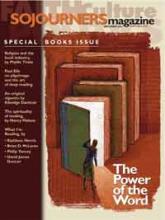The local section of The Washington Post recently ran a feature article on the Mount Pleasant Neighborhood Library, which serves two of the most ethnically diverse neighborhoods in the District of Columbia, Mount Pleasant and Columbia Heights. In a building that is severely deteriorating (as are most of D.C.s library facilities), everyday sparks of hope are generated, not even doused by the leaking roof: City kindergartners from a local school hear stories about autumn leaves and steam trains; a fifth-grader reads about space; a bakery deliveryman from El Salvador checks out the novel White Teeth by Zadie Smith for the English class hes taking; another immigrant seeks The Iliad for his son.
Even the lurking shadow of the Patriot Act cant change the fact that your local library may be one of the most radical institutions in town, at least when it comes to the potential that it holds to change lives and society. What else beside books can provide the tools to survive and succeed in a new land and make immigrants of all readers, transporting them to new frontiers of imagination, understanding, compassion, beauty, and truth? As I pondered the "deeper," spiritual implications of reading, this simple newspaper article planted my feet back on the ground, a reminder that books, like bread, can feed us on many levels at once.
Likewise, reading can be like baptism, in that sometimes it is only through immersion we can emerge to new being, new possibility, new vision. By losing ourselves in a story or following intricate ideas into a state of contemplation or illumination, we allow ourselves to be changed. The horizon opens up, the tiniest detail becomes visible, or someone who had seemed alien suddenly is recognized as family.
Read the Full Article
